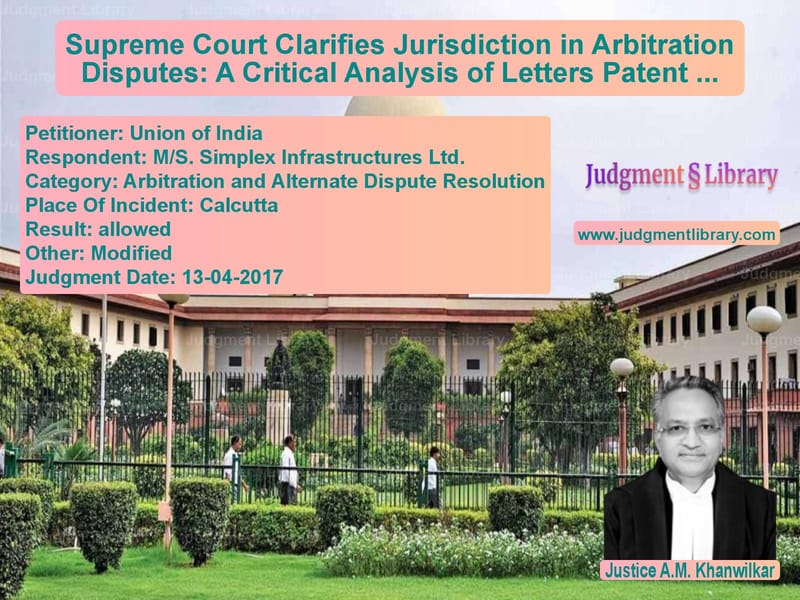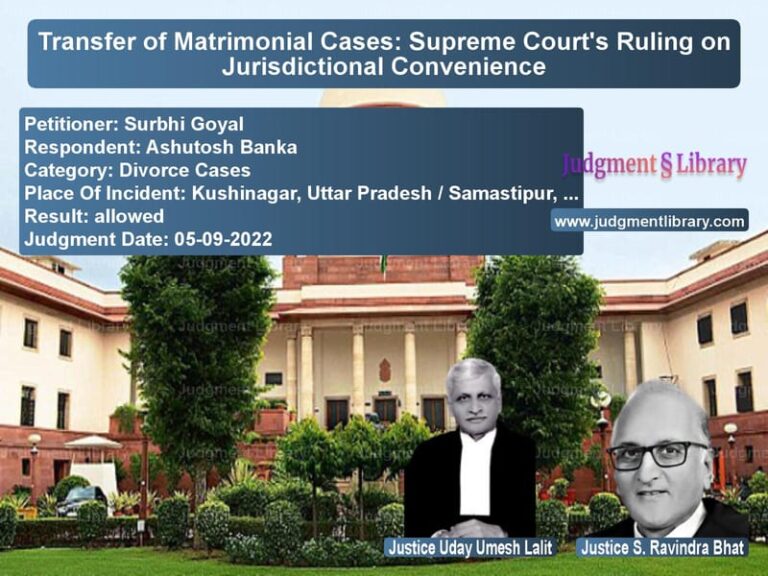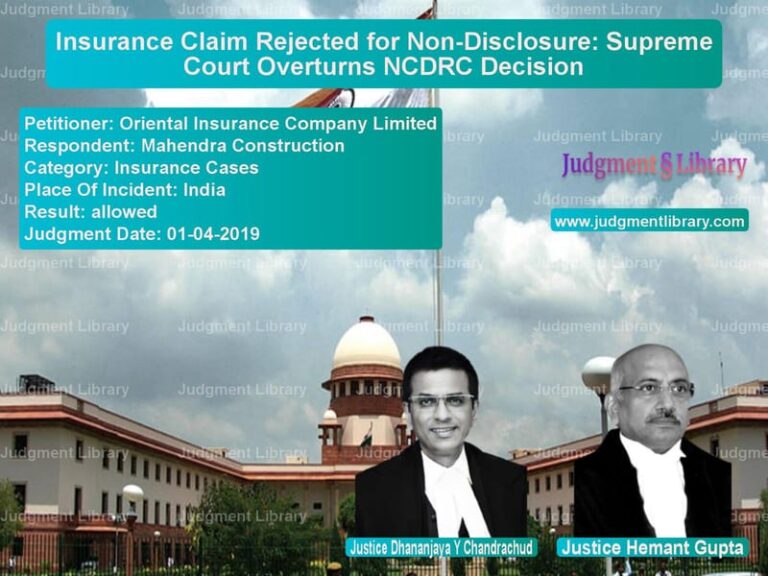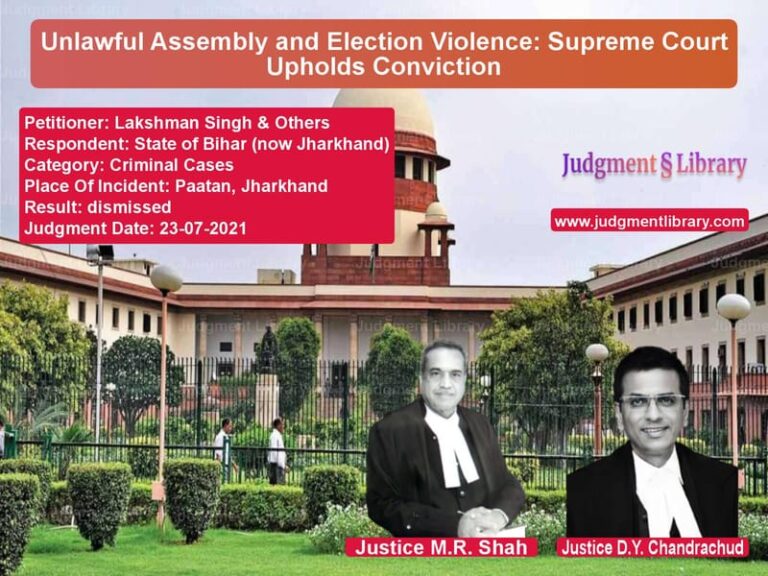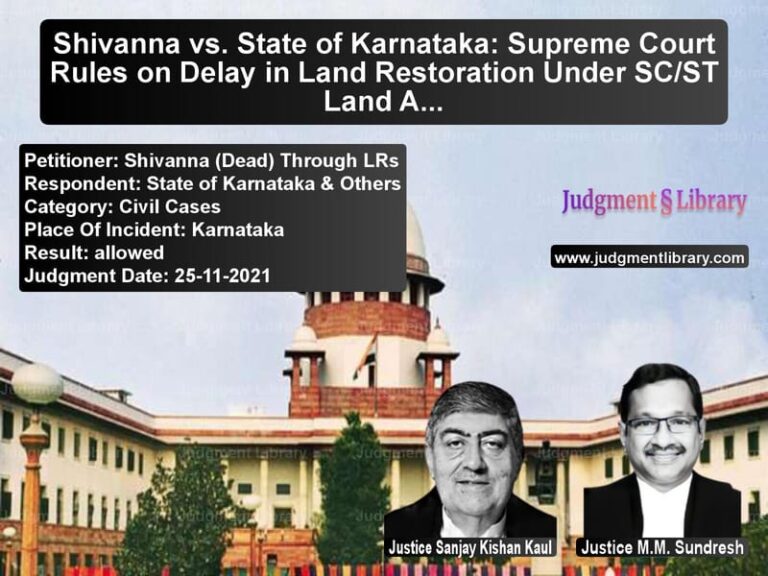Supreme Court Clarifies Jurisdiction in Arbitration Disputes: A Critical Analysis of Letters Patent Appeal
The Supreme Court of India recently delivered a pivotal judgment in Union of India v. M/S. Simplex Infrastructures Ltd., addressing the complex issue of jurisdiction in arbitration disputes and the maintainability of Letters Patent Appeals against arbitration-related court orders. This decision profoundly impacts the procedural aspects of how arbitration disputes are adjudicated across different judicial forums in India.
The dispute stemmed from a contract awarded by the Union of India to Simplex Infrastructures for construction work in the Andaman and Nicobar Islands. Subsequent disagreements led to arbitration proceedings, the outcome of which was challenged by the Union of India in the Calcutta High Court under the Arbitration and Conciliation Act, 1996.
Background of the Case
The initial arbitration award was in favor of Simplex Infrastructures, prompting the Union of India to seek redress in the judiciary. After the award was challenged unsuccessfully in the lower courts, the matter was escalated to the Supreme Court, focusing on whether a Letters Patent Appeal could be maintained against an order of a Single Judge regarding an arbitration application.
Judgment Summary
The Supreme Court, led by Justice A.M. Khanwilkar, addressed the critical question of whether such appeals are permissible under the legal framework governing arbitration in India. The Court’s analysis hinged on interpreting the clauses of the Letters Patent of the High Court of Calcutta and the specific provisions of the Arbitration and Conciliation Act, which is considered a self-contained code on arbitration.
The judgment clarified that the scope of appealability under the Arbitration Act is limited and designed to ensure that arbitration remains a fast, efficient, and minimal interference process by the courts. The Court emphasized that the act of condoning delay or setting aside an arbitration award should generally be viewed as falling within the exclusive purview of the Arbitration Act and not subject to further appeals unless specifically provided by the law.
Implications of the Judgment
This decision underscores the judiciary’s intent to minimize its interference in arbitration proceedings, adhering closely to the legislative intent behind the Arbitration and Conciliation Act. It reinforces the position that the designation of a ‘seat’ of arbitration in a contract assigns exclusive jurisdiction for related disputes to the courts of that location, thereby limiting the applicability of Letters Patent Appeals in such matters.
The ruling is significant for legal practitioners and companies engaged in contractual agreements with arbitration clauses, as it affects how jurisdictional issues are approached and resolved in arbitration disputes. It also serves as a crucial precedent for future cases involving the interpretation of jurisdiction under the Arbitration Act.
Don’t miss out on the full details! Download the complete judgment in PDF format below and gain valuable insights instantly!
Download Judgment: Union of India vs MS. Simplex Infrast Supreme Court of India Judgment Dated 13-04-2017.pdf
Direct Downlaod Judgment: Direct downlaod this Judgment
See all petitions in Arbitration Awards
See all petitions in Commercial Arbitration
See all petitions in Dispute Resolution Mechanisms
See all petitions in Judgment by A M Khanwilkar
See all petitions in allowed
See all petitions in Modified
See all petitions in supreme court of India judgments April 2017
See all petitions in 2017 judgments
See all posts in Arbitration and Alternate Dispute Resolution Category
See all allowed petitions in Arbitration and Alternate Dispute Resolution Category
See all Dismissed petitions in Arbitration and Alternate Dispute Resolution Category
See all partially allowed petitions in Arbitration and Alternate Dispute Resolution Category

